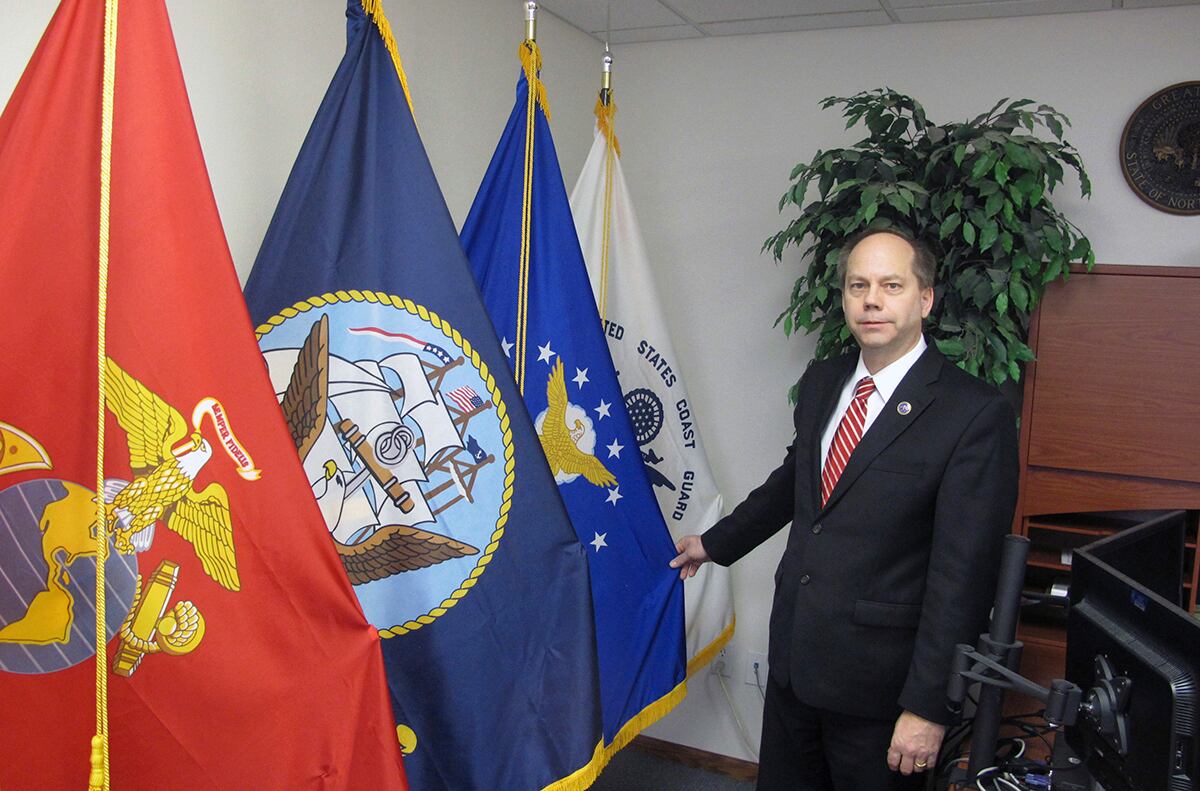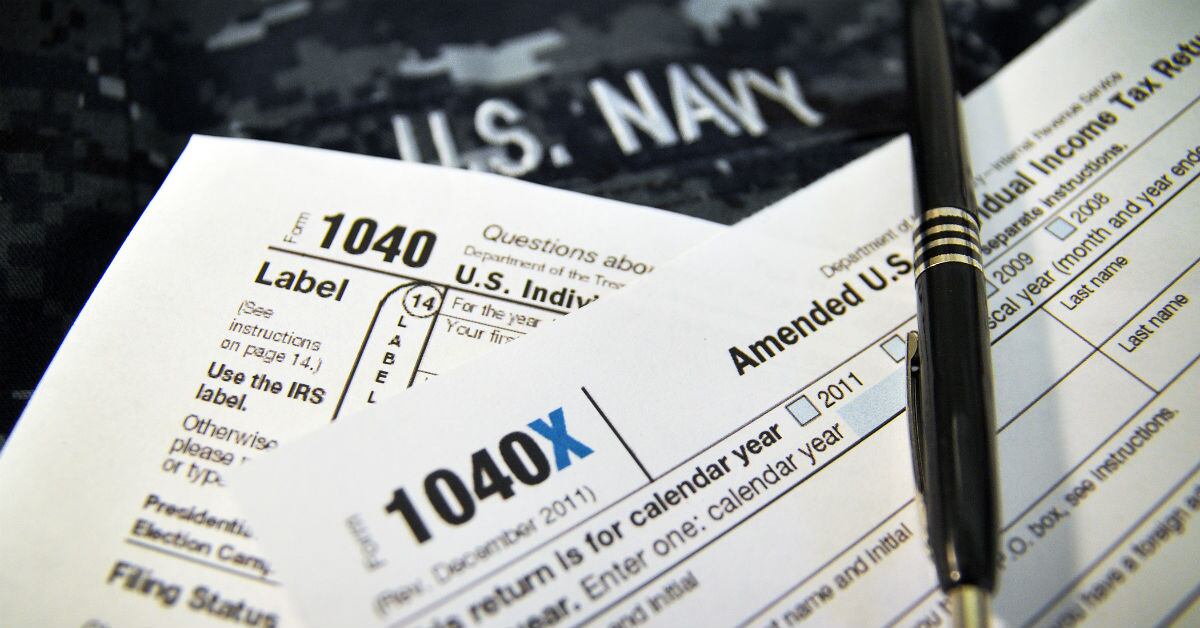BISMARCK, N.D. — Gov. Doug Burgum wants to exempt military pay and pensions from North Dakota income taxes, arguing in part that retaining veterans could help the state fill thousands of open jobs.
Legislators have ignored similar pleas in the past, but supporters say the economic benefits of keeping veterans in the state would more than make up for lost revenue.
North Dakota has more than 13,000 unfilled advertised jobs, though Burgum believes the number of all open jobs is at least twice that.
"It is a way to honor them for their service," the first-term Republican governor told The Associated Press on Wednesday. "But it's also a way to incent people to stay in our communities, stay in our state at a time when they've got the skills that we need to fill all the jobs that we've got available in our state."
RELATED

North Dakota is one of only eight states that fully taxes military retirement pay.
"We're on the wrong end of the bell curve on that one," Burgum said. "We're lagging instead of leading."
In his budget address last week, Burgum proposed that the pensions of retired military veterans should be exempt from state income taxes.
A separate bill from Fargo Republican Rep. Shannon Roers Jones would go a step further by also prohibiting the state from collecting income tax from military members on active duty, in the Guard or in the reserves. The bill would include exemptions for surviving spouses but would not cover civilian employees of the military.
Burgum said he also would support that bill.

Lonnie Wangen, the state's veterans affairs commissioner, said retirees who stay in the state often lend their skills to their new jobs in the civilian sector.
"They start working another job and pay more taxes," Wangen said. Their spouses also often work and their children may attend one of the state's universities, he said.
Still, he said, income tax forgiveness alone probably won't be the reason retirees would stay in North Dakota.
"North Dakota's income tax isn't killing anybody," Wangen said. "This really is a big picture thing."
RELATED

The state Tax Department estimates the idea would mean about $3 million in lost revenue, based on about 6,000 retired veterans drawing a pension in North Dakota.
The tax agency said there are about 5,100 active duty military, armed forces reserves and National Guard members who would qualify for the pay exemption, at a cost of about $2.8 million every two years.
A soldier with a base pay of $35,000 a year would pay about $270 in state income tax. Nine states have no income tax for anyone, and several have exemptions for the military members currently serving.
Burgum said he doesn't consider it lost revenue for the state.
"The benefits start to accrue if we can get people to choose to stay in North Dakota versus move out of North Dakota," he said.
Military members generally may retire after 20 years, leaving many of them in their late 30s or early 40s with "a lot of career potential ahead," said Roers Jones.
Wally Keller, 59, of Bismarck, spent 39 years in the Army and National Guard and said forgiving the state income tax for military members would show "respect and thanks" to those who have served.
"None of us joined to get a tax break — it never crossed our minds," he said. "But it would be nice to see this."
Republican Sen. Dwight Cook of Mandan, the chairman of the Senate's Finance and Taxation Committee, served six years in the state's Air National Guard and said he never had a problem with paying state income tax. He also has voted against previous attempts to exempt state income tax for active duty or retirees.
He's having second thoughts now, with the state's workforce problem.
“We could use retired vets as a source of labor, so this is an issue that has some merit now,” he said.




